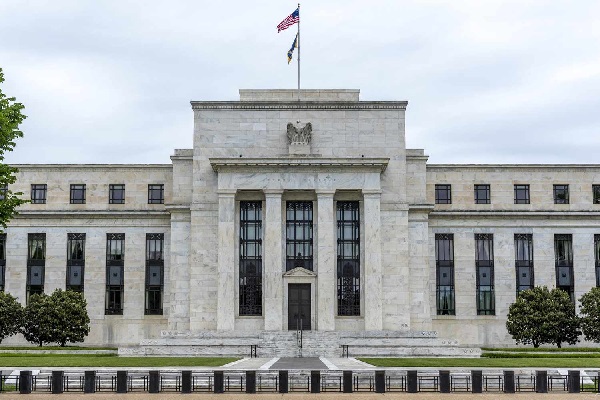
(Photo : Fed)
Fed Reserve Building
- U.S. financial professionals are now focusing on increasing U.S. debt, potential recession, and global trade risks.
- A Federal Reserve survey revealed that the top-cited risk was the sustainability of U.S. fiscal debt.
- The possibility of a weakening economy and a potential global trade war have moved higher on the list of concerns.
- The survey paints a picture of a financial sector grappling with a shifting landscape of risks, with significant implications for the stability of the financial sector and the broader economy.
The recent U.S. elections have brought about a shift in the concerns of financial professionals. Previously focused on the threat of rising inflation, the attention has now turned towards the increasing U.S. debt, potential recession, and risks to global trade. These concerns, highlighted in a new Federal Reserve survey, are seen as the primary threats to the stability of the financial sector.
The survey, conducted among two dozen financial sector participants and observers from August to October, revealed that the top-cited risk was the sustainability of U.S. fiscal debt. It was noted that an increase in Treasury issuance could begin to crowd out private investment or limit policy responses in the event of an economic downturn.
This concern has been mirrored in recent bond market behavior, with yields on 10-year Treasury notes rising sharply over the last two months, despite the Fed having cut its benchmark lending rate twice by a total of 75 basis points.
In addition to this, the survey found that the possibility of a weakening economy and a potential global trade war have moved higher on the list of concerns. Some respondents noted the potential for tariff barriers to prompt retaliatory protectionist policies that could negatively affect global trade flows and put renewed upward pressure on inflation.
U.S. Fiscal Debt Sustainability Tops Concerns
Others pointed out that a deterioration in global trade could depress economic activity and increase the risk of a downturn. Interestingly, persistent inflation and tight Fed monetary policy, which had been cited as the top risk in a previous survey issued in the spring, fell to sixth place in the current poll. This shift in concern reflects the changing economic landscape and the evolving challenges facing the financial sector.
The survey's findings are particularly relevant in light of President-elect Donald Trump's anticipated economic policies. Some economists believe that Trump's expected combination of tax cuts and import tariffs could potentially fuel both inflation and already large federal deficits. This comes at a time when bond markets have been keeping yields elevated on U.S. Treasury bonds.
The list of near-term risks to stability published in the survey echoes the concerns raised in the two 2019 financial stability reports. Back then, trade frictions were the top concern after Trump had launched a trade war with China and had forced Mexico and Canada to renegotiate the North American Free Trade Agreement.
Trump Inherits a Financial System Under Pressure
The survey also provides a snapshot of the financial system that Trump is set to inherit. While the system appears largely solid from many perspectives, some notable pressures are emerging. Asset values remain elevated, a concern since rich pricing can mean steeper reversals if sentiment or conditions change.
Liquidity is low and commercial property prices are under stress. Household borrowing is modest, but delinquency is rising on some types of loans, and businesses have borrowed heavily. Banks, many of them under Fed supervision with closely watched capital levels, remain sound and resilient.
One particular asset class, the stablecoins used as part of the cryptocurrency system, was singled out as both growing and vulnerable to runs. This highlights the evolving nature of the financial sector and the new challenges it faces.









